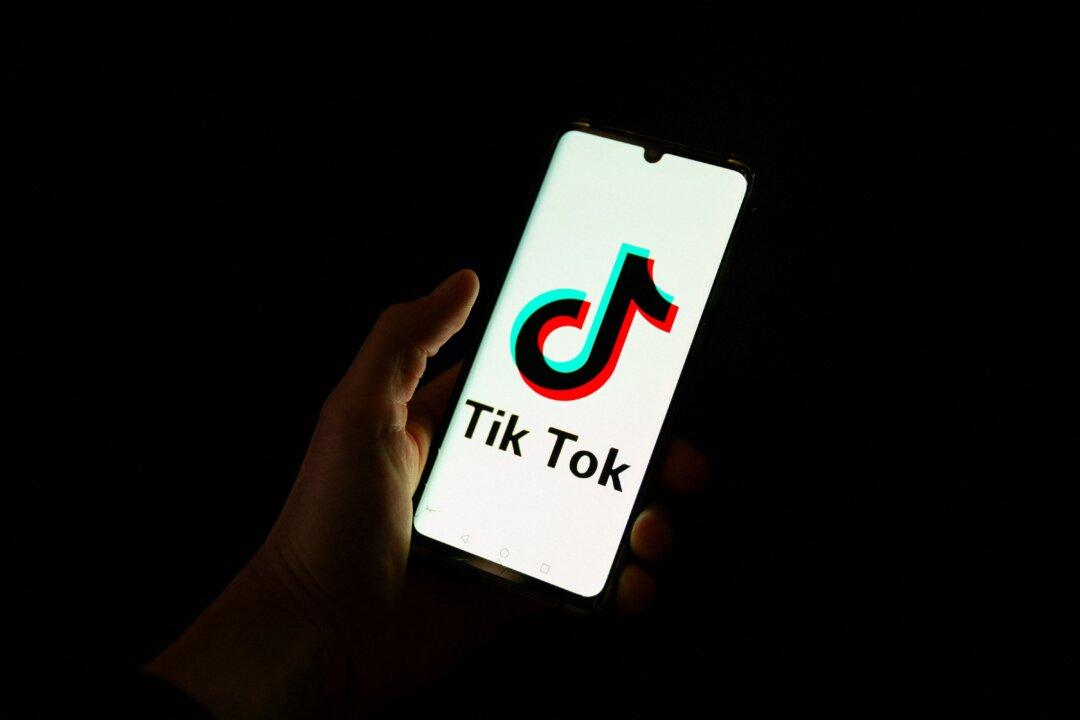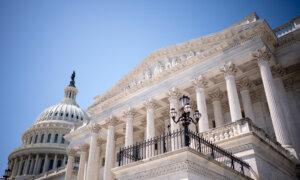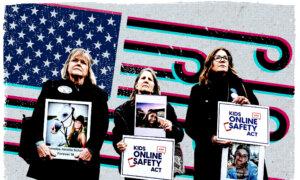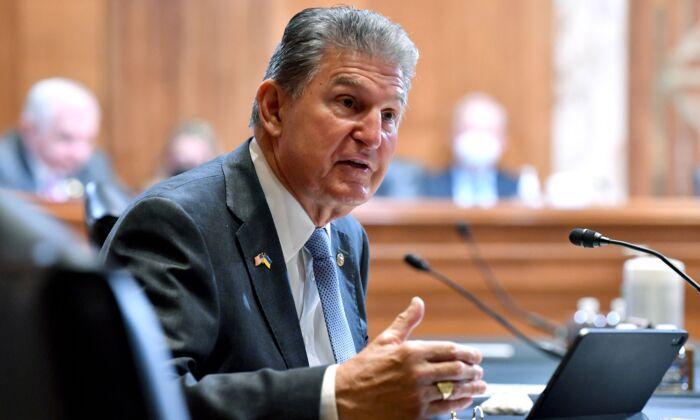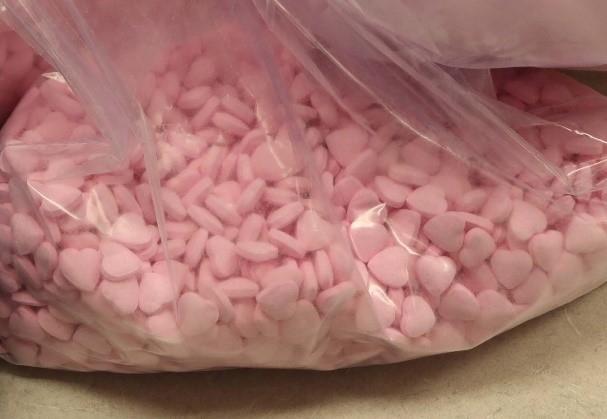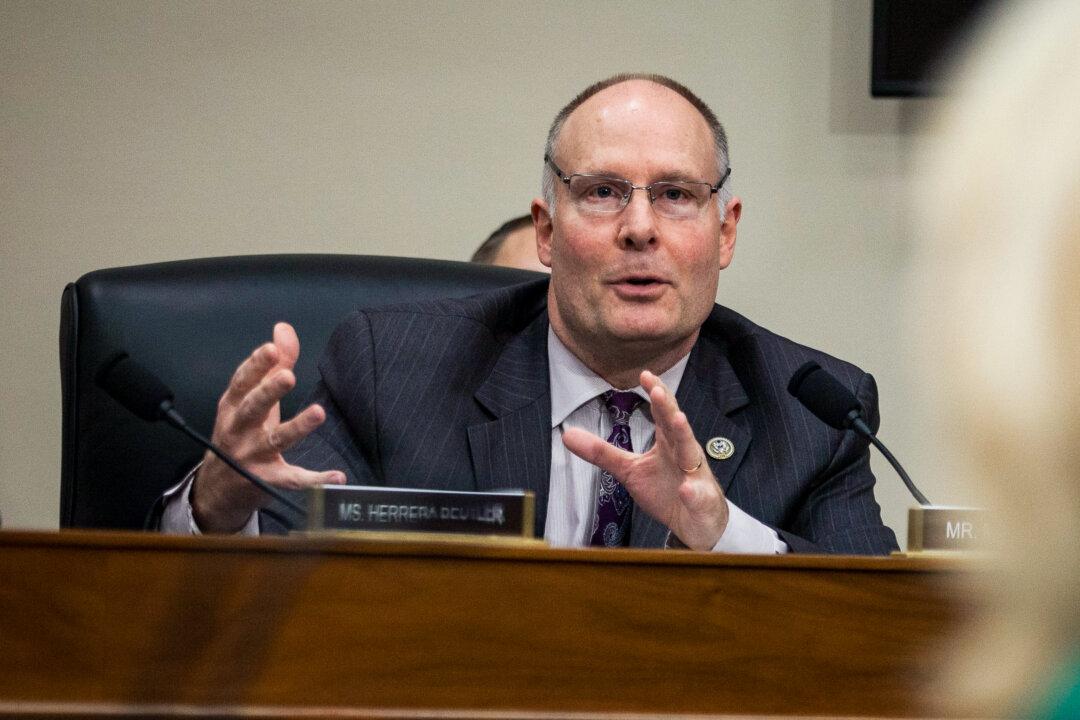President Joe Biden has signed the TikTok divest-or-ban bill into law. On the night of April 23, the Senate passed the legislation, 79–18, as a part of the foreign aid package.
The law gives ByteDance, TikTok’s Chinese parent company, a year to sell the app, or it will be banned from mobile app stores and web-hosting services.
The initial deadline is Jan. 19, 2025, before the next presidential inauguration day. According to the law, President Biden can extend the deadline by three months to allow the deal to be completed.
TikTok CEO Shou Zi Chew released a video statement on April 24.
“Make no mistake, this is a ban—a ban on TikTok and a ban on you and your voice,” he said.
“We are confident, and we will keep fighting for your rights in the courts. The facts and the Constitution are on our side, and we expect to prevail again.”
Mr. Chew was referring to the company’s successful circumvention of former President Donald Trump’s executive order to ban the app in the United States in 2020.
At a press briefing on April 24, White House spokesperson Karine Jean-Pierre said the new TikTok law “is not a ban” and is “about divestment.”
She noted that there is enough time to “let that process play out” and that there are “a number of interested buyers” for TikTok. She also said China “should allow it to be sold.”
Sen. Marco Rubio (R-Fla.), the top Republican on the Intelligence Committee, said after the TikTok bill became law: “It’s official: communist China is on the clock.
“TikTok extended the Chinese Communist Party’s power and influence into our own nation, right under our noses. I have been raising concerns about TikTok since 2019, so this new law forcing ByteDance to divest from TikTok is a huge step toward confronting Beijing’s malign influence.”
On April 23, the Senate debate regarding the TikTok bill was about national security and free speech.
Sen. Mark Warner (D-Va.), chair of the Select Intelligence Committee, highlighted the concern that TikTok was “operating at the direction of a foreign adversary.”
“It’s not hard to imagine how a platform that facilitates so much commerce, political discourse, and social debate could be covertly manipulated to serve the goals of an authoritarian regime, one with a long track record of censorship, transnational repression, and promotion of disinformation,” Mr. Warner said.
“In recent weeks, we’ve seen direct lobbying by the Chinese government, indicating, perhaps more than anything we'll say on the floor here, how dearly Xi Jinping is invested in this product—a product, by the way, [that] is not even allowed to operate in the Chinese domestic market itself,” Mr. Warner said.
Sen. Maria Cantwell (D-Wash.), chair of the Senate Commerce Committee, quoted the Department of Justice, saying, “Hostile foreign powers are weaponizing bulk data and the power of artificial intelligence to target Americans.”
Ms. Cantwell said the TikTok divest-or-ban requirement is a “de-weaponization” to stop an export-controlled algorithm owned by a Chinese company from accessing American consumer data.
TikTok has repeatedly maintained that it is independent from its Chinese parent company. According to TikTok, its U.S. customer data are stored in Virginia and backed up in Singapore, and it has never, and will never, share its U.S. data with the Chinese regime.
However, Mr. Warner said the project “does not resolve the United States national security concern about ByteDance’s ownership of TikTok” because it would “still allow TikTok’s algorithm, source code, and development activities to remain in China” and “under ByteDance control and subject to the Chinese government’s exploitation.”
He emphasized to young people that the bill was not a ban and that TikTok could still be available in the United States after the sale.
However, Sen. Ed Markey (D-Mass.) argued that a sale would be so difficult and expensive that it is “next to impossible.” Therefore, he said, the bill is a ban.
While acknowledging the national security threats, Mr. Markey warned about what he said will be the consequences of banning TikTok: impeding free speech and spreading censorship.
When TikTok released a statement on April 21, a day after the House passed the foreign aid package, the company stated that it would resort to legal means on First Amendment grounds once the TikTok divest-or-ban bill becomes law.
Sens. Rick Scott (R-Fla.) and John Fetterman (D-Pa.) told The Epoch Times that they don’t think TikTok has a free speech case.
“They have an allegiance to the Chinese government, and that’s the issue here,” Mr. Fetterman said about the company, noting that TikTok would be fine “if they’re willing to free themselves from that.”
The Epoch Times contacted TikTok for comment but received none by press time.
